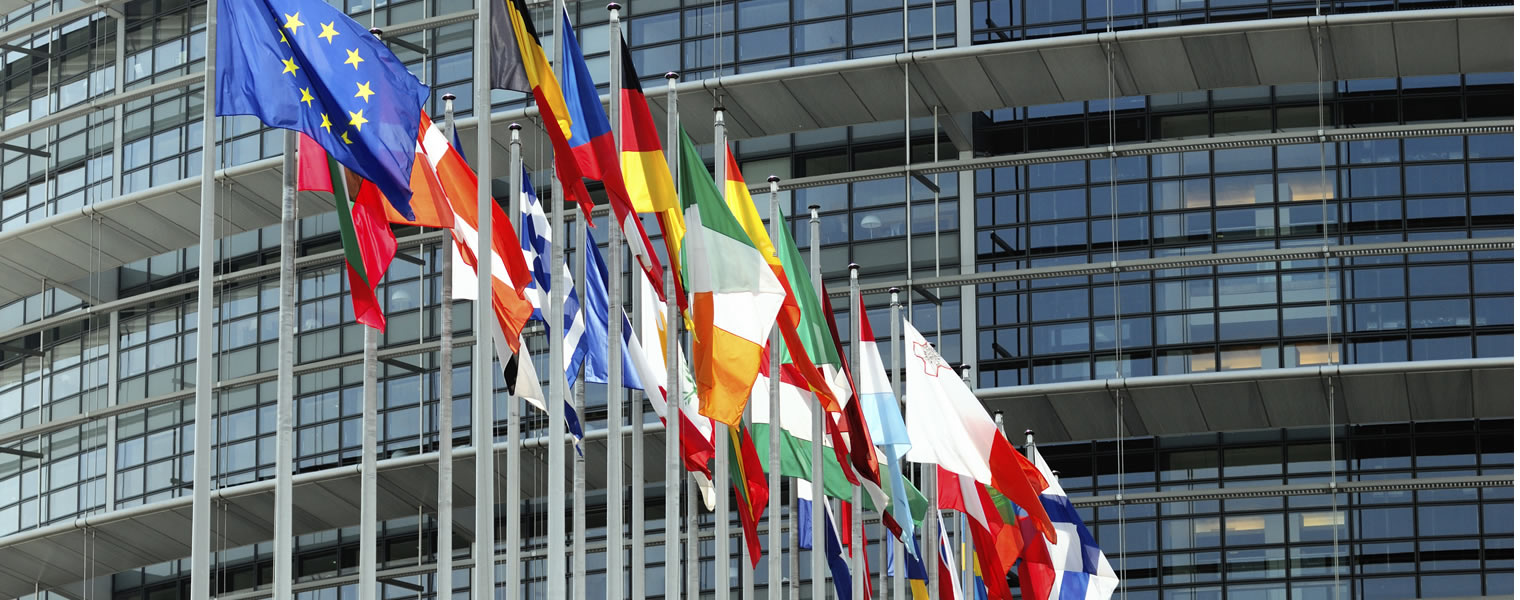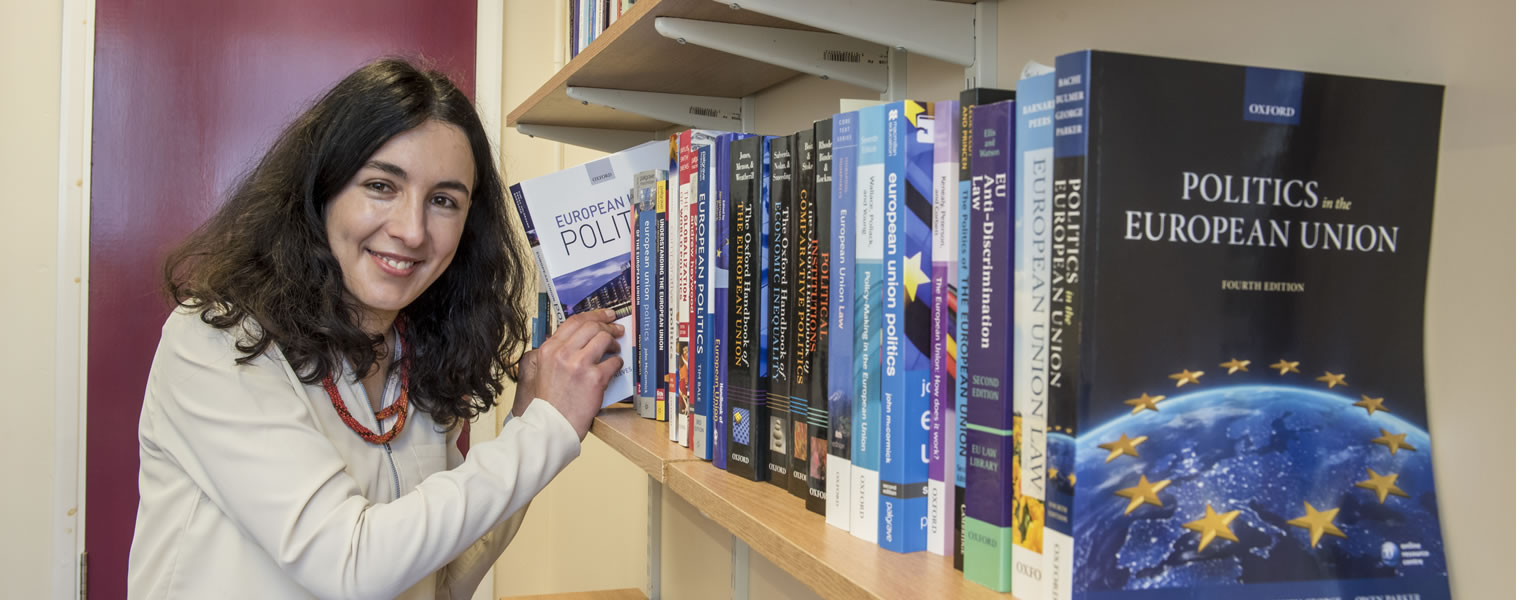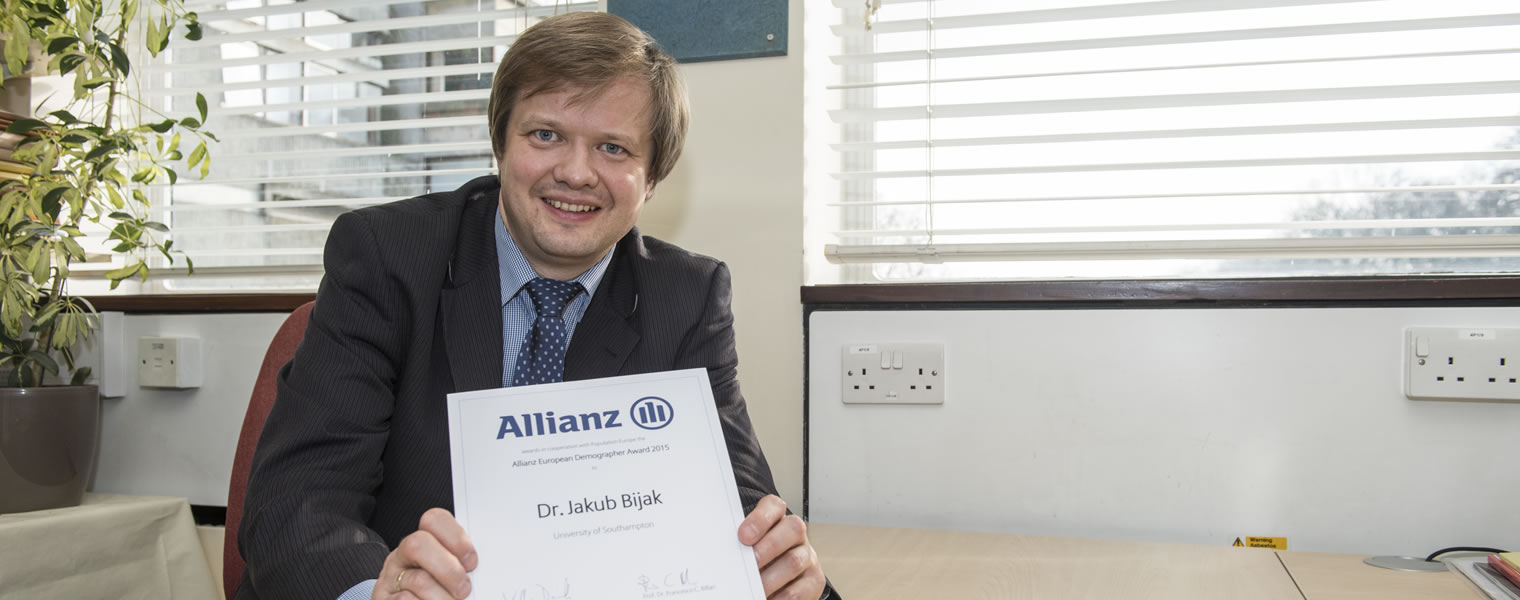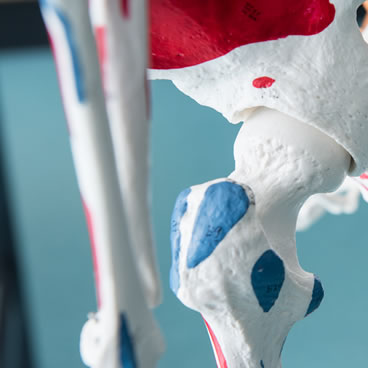Hartley News Online Your alumni and supporter magazine
On 23 June 2016, UK citizens have the chance to enter the history books and decide once and for all whether Britain should leave or remain in the European Union (EU). Southampton Connects investigates what it means to be in the EU and hears what our staff and students have to say.
The EU is an economic and political partnership involving 28 European countries; it began after World War II to foster economic cooperation with the idea that countries that trade together are more likely to avoid going to war with each other. It has since grown to become a single market, allowing goods and people to move around as if the member states were one country. It has its own currency, the euro, which is used by 19 of the member countries, its own parliament and it now sets rules in a wide range of areas – including on the environment, transport, consumer rights and even things like mobile phone charges.
Prime Minister David Cameron has said: “It is time for the British people to have their say. It is time to settle this European question in British politics.” But what is the true nature of the EU and how will the referendum affect our students?
Impact on UK students
“The debate around Britain’s membership of the EU is one that is vital to the future of students,” says Matthew Cowley, a politics and economics student at the University, leader of the Southampton Students for Britain group, and member of the Conservative Party. The debate will shape our economic prospects, shape our ability to achieve our goals and ambitions, and affect our businesses, he explains.
It is one that has the power to give our generation back the sovereignty and political powers taken away in generations past.
Matthew argues that the EU question has an enormous impact on the future of UK students. “Do we want to be tied into a declining single market? Do we want our economic future to be with the Eurozone area, or with the growing nations of the world? Do we want to take back control of our trade, and become a truly international nation, trading with 196 countries, rather than just 27? If you believe that we should reassert control over our trade, then you should use your vote,” he enthuses.
However, being in or out of the EU is about more than just economics even though the Remain and Brexit campaigns seem to be focusing on these arguments – how leaving the EU will affect the UK financially in the short- as well as the long-term. Dr Ingi Iusmen, Lecturer in Governance and Policy at the University, explains that the EU was never exclusively about economic integration.
More than just economics
“It started off as an economic project, but the improvement of the lives of European workers has always underpinned it,” she says. “Indeed the realisation of the freedom of movement of workers, capital, goods and services – the four pillars of the EU – has led to the development of EU legislation that ensured the rights and wellbeing of European workers within the common market context are upheld.”
The EU has an important body of law that provides the minimum rights that EU workers should enjoy, such as health and safety at work, protection against discrimination (based on gender, race, religion, age, disability and sexual orientation), equal opportunities for men and women or labour law (such as working hours and employment of young people), explains Ingi.
Most of us, as EU citizens, take this EU legislation, which protects our rights in the labour market and at the national level, for granted. However, if Britain left the Union, then this EU legislation would no longer apply to European and British workers in the UK.
The migration issue
Migration is one of the key themes of the referendum, which will happen at a time of high migration pressure: the unprecedented numbers of migrants coming to the UK each year, coupled with the refugee and migrant crisis faced by the whole EU. The latter is linked to the war in Syria and elsewhere, to illegal migration from various countries, and to challenges posed by human smuggling, explains Dr Jakub Bijak, Associate Professor in Demography at Southampton.
The idea that migration is fully controllable or predictable is a comfortable illusion. Even though it may well win the Brexit vote, this mirage of control does not change the fundamentals of UK migration, which involve a complex web of interrelated factors that influence population movements. In reality, migration has its own dynamics, which will remain largely unaffected by the referendum outcome.
Jakub suggests that with respect to migration and asylum, the EU needs reform. “The current migrant crisis has laid bare the dysfunctionality of the asylum system based on the Dublin regulations, and despite the obvious benefits of free movement of workers in the EU, in the short term migration can generate negative pressure on the wages and employment prospects at the bottom of the job hierarchy. Important challenges are also related to security and migrant integration.”
Reform rather than leave
“A reformed EU would be in a better position to address these challenges than any single member state on its own. Given the volatility of migration, the stakes are too high to base a decision just on the present crisis, with disregard for the economic and political potential of a multinational block of countries in mitigating similar risks in the future,” Jakub says.
Rosie Pearce is a third-year politics and international relations student at Southampton. She founded the University’s Young Greens Society in 2015 and agrees with Jakub that we are in a better position to address issues such as migration inside the EU.
“Having just returned from my semester abroad at Stockholm University, I am perhaps an obvious member of the ‘remain in the EU’ camp,” says Rosie. The Erasmus scheme, which enabled Rosie to spend part of her degree abroad, is an EU initiative that has been running since 1987 and fosters unity and cooperation by facilitating student exchanges to universities across Europe. “I saw this first-hand at Stockholm University, where there was a whole culture of international students from all over the world, but especially from Europe.”
However, Rosie still has reservations about the UK’s membership of the EU. She explains that the EU is influenced by multinational corporations and has a so-called ‘democratic deficit’. “Most parliamentary decisions are made without debate, while many important decisions bypass parliament altogether,” she says.
Emotions may sway the referendum
“But the UK doesn’t do much better on these counts domestically. The UK also has corporate interest problems, like lenient deals with big business, one of the latest cases being Google’s tax payments. It also has its own problems with democracy – the House of Lords, a whole chamber of our two-chamber parliament, is unelected,” Rosie explains.
Let’s not forget that there has been no war between EU members since the creation of the (then) European Economic Community in 1957. Moreover, to quote the name of a prominent pro-EU group, ‘Another Europe is Possible’ – we can reform the EU, but only if we stay in it.
But Matthew counters that a true democracy is one that gives power to its people. “The EU takes decision-making away from local, British authorities, and hands it to bureaucrats in Brussels and Strasbourg. To reclaim our democracy, to bring power back to the most local level possible, we must reclaim our sovereignty from the EU. Pooled sovereignty – giving away powers to the EU – is no sovereignty at all,” he says.
“Emotions may sway the referendum result, but ultimately British society will have to live with the aftermath of whatever decision it makes, for generations to come,” observes Jakub.
To read about the University’s EU referendum debate that took place on 13 May, visit the Your News section of the magazine.
To read more of the views touched upon in this article and to join the EU debate, visit our Views on Europe blog.







